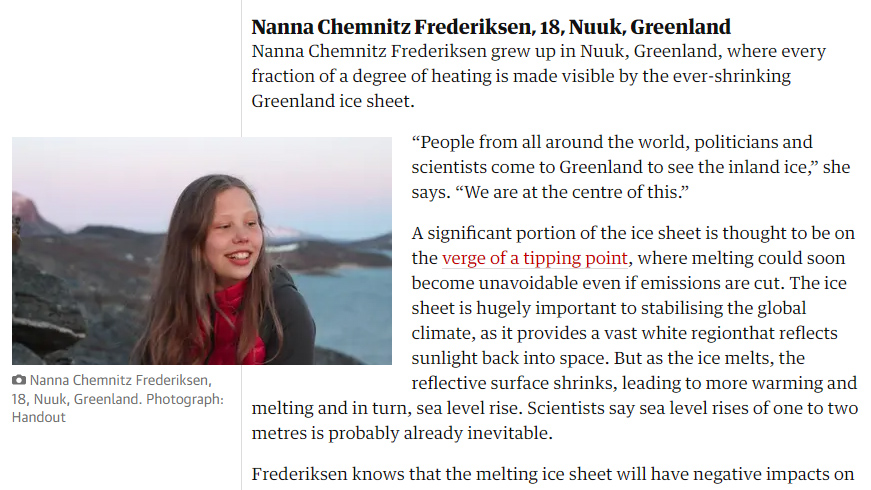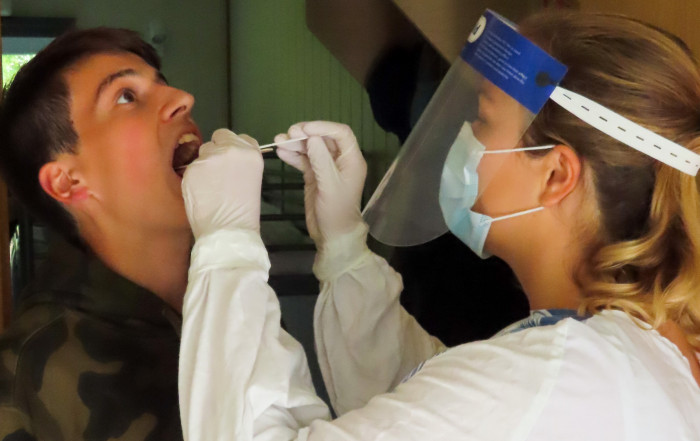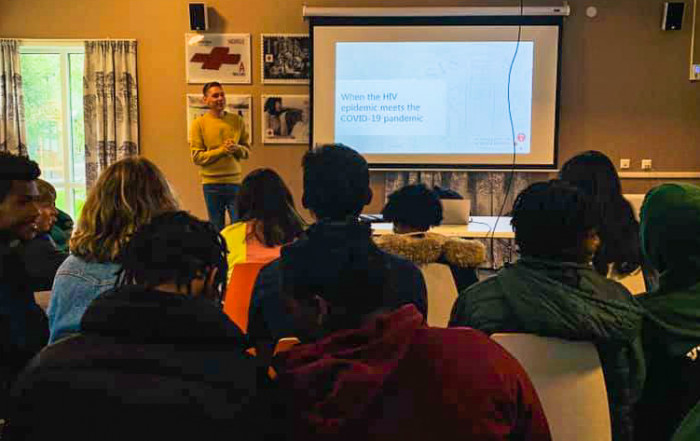“People from all around the world, politicians and scientists come to Greenland to see the inland ice,” she says. “We are at the centre of this.”
A significant portion of the ice sheet is thought to be on the verge of a tipping point, where melting could soon become unavoidable even if emissions are cut. The ice sheet is hugely important to stabilizing the global climate, as it provides a vast white region that reflects sunlight back into space. But as the ice melts, the reflective surface shrinks, leading to more warming and melting and in turn, sea level rise. Scientists say sea level rises of one to two metres is probably already inevitable.
Frederiksen knows that the melting ice sheet will have negative impacts on communities across Greenland, especially in northern settlements such as Qaanaaq where permafrost melting is destabilizing homes and roads and impacting how fishers and hunters operate.
But her real concern lies on the impact it will have globally. “I am not so scared of what the effects of the melting of ice in Greenland will be,” Frederiksen says, “It scares me what effect it can have for the rest of the world.”
Latest News
We welcome Solveig-Karin (RCN 2000) as co-year rep.
At the heart of the UWC education model is a deliberately diverse, engaged and motivated community in pursuit of our mission. This also means that UWC students have an open invitation to stay [...]
Welcoming our Students to a Safe Community
Starting up again we carefully seek to meet all challenges posed by the pandemic. This means establishing routines and standards which we now are putting into daily practices. We are set to minimize [...]
Alumnus research on COVID-19 w. WHO
Morten Skovdal (RCN 2000) has joined forces with WHO to understand the psychosocial impact of COVID-19 on migrants and refugees globally. The survey is available in 37 languages, most of which have been [...]




